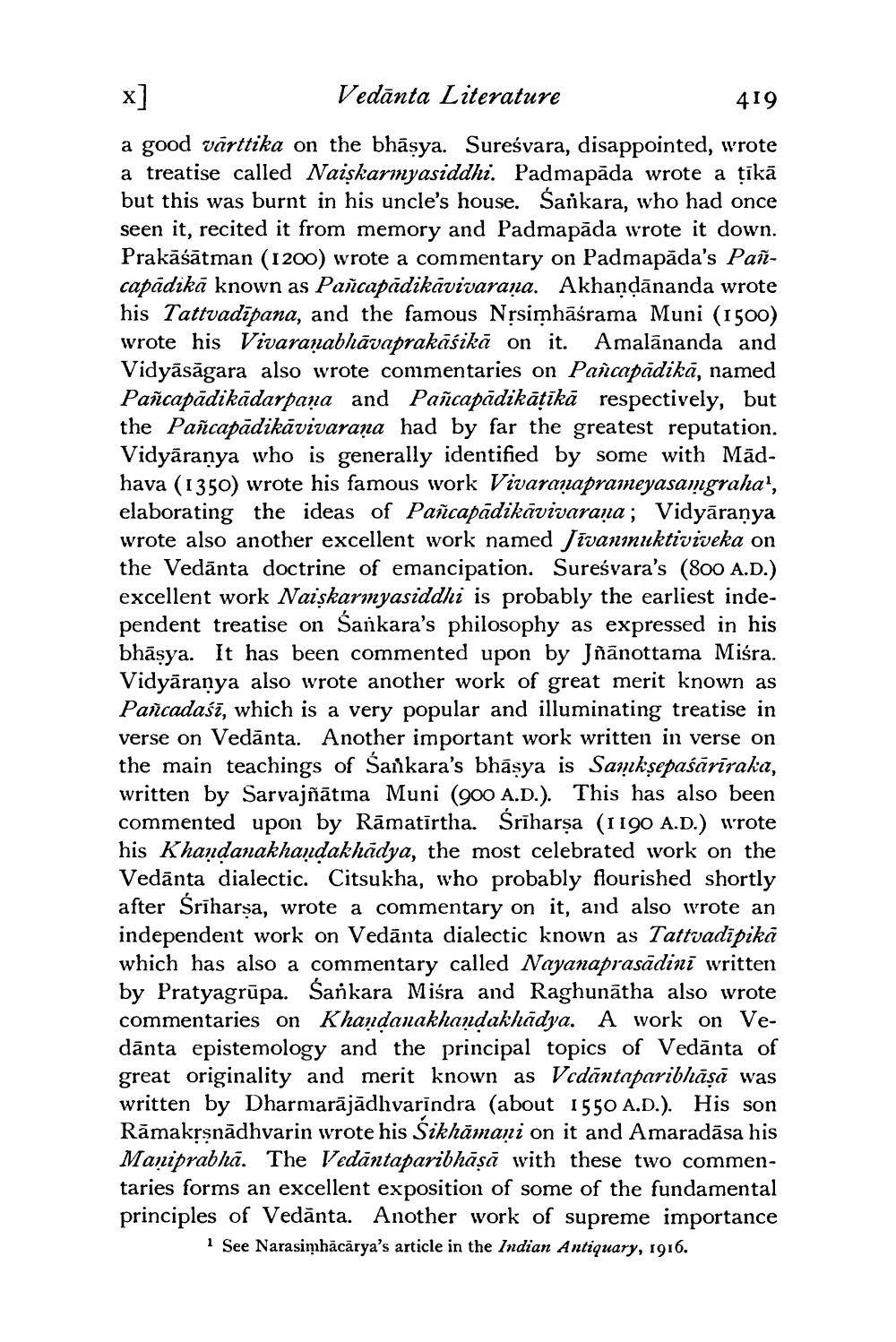________________
Vedānta Literature
419
a good vārttika on the bhāsya. Sureśvara, disappointed, wrote a treatise called Naiskarmyasiddhi. Padmapāda wrote a țīkā but this was burnt in his uncle's house. Sankara, who had once seen it, recited it from memory and Padmapāda wrote it down. Prakāśātman (1200) wrote a commentary on Padmapāda's Pascapädikā known as Païcapadikāvivarana. Akhandānanda wrote his Tattvadīpana, and the famous Nșsimhāśrama Muni (1500) wrote his Vivaranabhāvaprakāśikā on it. Amalānanda and Vidyāsāgara also wrote commentaries on Pancapädikā, named Pañcapādikādarpaşa and Pañcapādikāțīkā respectively, but the Pañcapādikāvivarana had by far the greatest reputation. Vidyāranya who is generally identified by some with Mādhava (1350) wrote his famous work Vivaranaprameyasamgraha', elaborating the ideas of Pañcapādikāvivarana; Vidyāranya wrote also another excellent work named Jivanmuktiviveka on the Vedānta doctrine of emancipation. Sureśvara's (800 A.D.) excellent work Naiskarmyasiddhi is probably the earliest independent treatise on Sankara's philosophy as expressed in his bhāsya. It has been commented upon by Jñānottama Miśra. Vidyāranya also wrote another work of great merit known as Pascadaśī, which is a very popular and illuminating treatise in verse on Vedānta. Another important work written in verse on the main teachings of Sarkara's bhāsya is Samksepaśārīraka, written by Sarvajñātma Muni (900 A.D.). This has also been commented upon by Rāmatīrtha. Śrīharşa (1190 A.D.) wrote his Khandanakhandakhădya, the most celebrated work on the Vedānta dialectic. Citsukha, who probably flourished shortly after Śrīharsa, wrote a commentary on it, and also wrote an independent work on Vedānta dialectic known as Tattvadipikā which has also a commentary called Nayanaprasādini written by Pratyagrūpa. Sankara Miśra and Raghunātha also wrote commentaries on Khandanakhandakhādya. A work on Vedānta epistemology and the principal topics of Vedānta of great originality and merit known as Vcdāntaparibhāṣā was written by Dharmarājādhvarindra (about 1550 A.D.). His son Rāmakrsnādhvarin wrote his Sikhāmaại on it and Amaradāsa his Maniprabhā. The Vedāntaparibhāṣā with these two commentaries forms an excellent exposition of some of the fundamental principles of Vedānta. Another work of supreme importance
i See Narasimhācārya's article in the Indian Antiquary, 1916.




